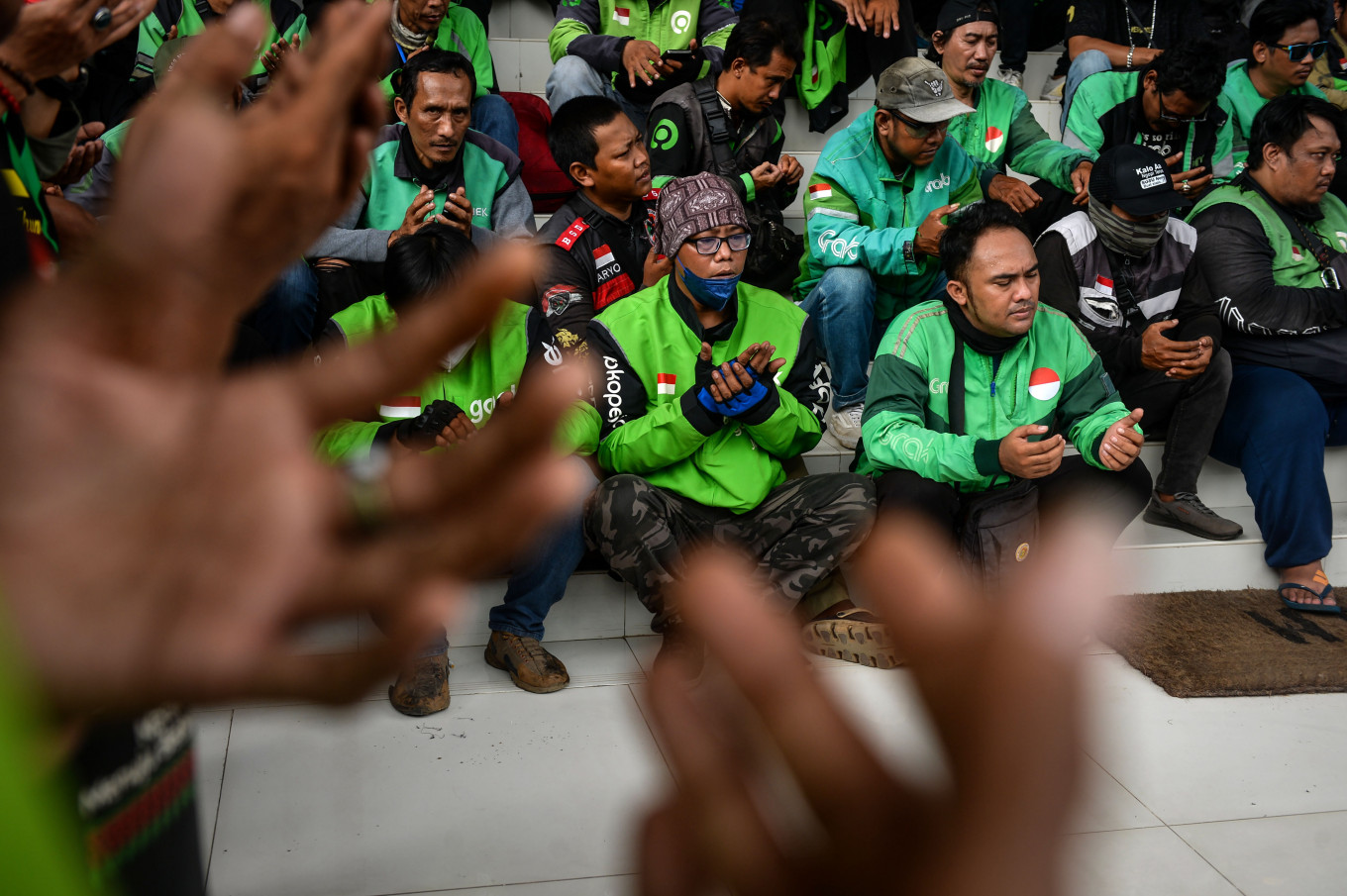Popular Reads
Top Results
Can't find what you're looking for?
View all search resultsPopular Reads
Top Results
Can't find what you're looking for?
View all search resultsSEAblings: When sending food turns into a gesture of solidarity among Southeast Asians
At least three factors underpin the emergence of this phenomenon: Grab’s platform features, a shared sense of fate and the socio-cultural fabric of Southeast Asia.
Change text size
Gift Premium Articles
to Anyone
T
he death of Affan Kurniawan, a 21-year-old online motorcycle transportation driver, who was run over by a police tactical vehicle on Aug. 28 during a rally in Jakarta, not only deepened national grief and public anger toward the government and legislature, but also sparked an unexpected wave of cross-border solidarity.
Amid the chaos of protests, Indonesian netizens began noticing posts from Malaysia, Singapore, the Philippines and Thailand showing screenshots of food orders placed through a delivery app.
The orders were not for friends or family, but for distant neighbors, Indonesian motorcycle taxi drivers they had never met.
This spontaneous cross-border act of sending food soon became known as SEAblings, a pun on the terms SEA (Southeast Asia) and siblings.
The movement grew organically, driven by voluntary participation, and spread rapidly. One of its early pioneers was Thai user @sighyam on X, who urged others on Aug. 30 to support Indonesian drivers.
Netizens across the region quickly joined in, sharing screenshots of their orders on X, Threads, and Instagram, and spreading the hashtag #SEAblings.
The phenomenon illustrates how digital solidarity can transcend borders without physical gatherings, formal organizations or humanitarian intermediaries and notably, without any overt political agenda.
At least three factors underpin the emergence of this phenomenon: Grab’s platform features, a shared sense of fate and the socio-cultural fabric of Southeast Asia.
Malaysian-based ride-hailing platform Grab became the main vehicle for this solidarity thanks to its wide reach across Southeast Asia. Founded in Malaysia in 2012 as MyTeksi, it now operates in eight countries and has grown into one of the region’s largest tech companies.
One of Grab’s key features is the ability to change the order location, allowing users in Bangkok or Kuala Lumpur to send food to drivers in Jakarta or Bali, a function rarely offered by other apps.
The use of this feature in #SEAblings shows that digital platforms like Grab are more than just economic tools, they hold remarkable power to mobilize people at scale. In this sense, ride-hailing apps have become a new force for grassroots activism.
This act of solidarity also stems from a shared sense of identity and common purpose. Technology platforms like Grab and Indonesia’s Gojek play a significant economic role, with millions of Southeast Asians relying on them for both livelihoods and daily needs.
In 2019, a Grab executive reported that the company had nearly 5 million partner drivers in Indonesia across GrabBike, GrabCar and GrabFood, a figure that excludes users, whose ranks might in fact be larger.
In other words, platforms like Grab are more than just apps for delivering food, goods or passengers, they are deeply woven into the daily lives of millions across Southeast Asia.
It is hardly surprising, then, that Affan’s death struck such a deep chord, evoking a powerful sense of shared fate and solidarity across the region.
Although it shares similarities with earlier cross-border digital activism in Asia, such as the Milk Tea Alliance in 2020, the SEAblings movement differs in a fundamental way: its solidarity is expressed in a tangible form, through food.
Southeast Asia is among the most generous regions in the world, with communities renowned for their giving spirit. Across the region, people share a common ethos, they take joy in giving and readily share their good fortune with others, especially those in need.
So why does the SEAblings movement center so strongly on food deliveries?
This is closely tied to Asian cultural norms, where food is seen as a universal language of love. Sharing a meal is not only about nourishing the body but also about providing emotional sustenance that makes someone feel cared for.
In Southeast Asia, it is common to greet someone with the question, “Have you eaten yet?”, a phrase that goes beyond mere politeness to express care and affection. Within the SEAblings movement, ensuring that distant “siblings” in Indonesia are well-fed reflects that same gesture of care, extended across borders.
Despite frequent tensions among the neighboring peoples, whether over maritime boundaries, the origins of dishes like rending or claims to traditional culture such as wayang, the SEAblings movement reveals how nations in the region remain, at heart, like siblings.
In other words, even if they sometimes quarrel, when one faces hardship, the others are quick to step in with support.
As of now, the SEAblings movement is still ongoing, with no clear indication of when it will end.
While the SEAblings movement may gradually fade as Indonesia’s political tensions subside, it has already shown that digital platforms can foster transnational solidarity without the involvement of states or humanitarian agencies.
As a spontaneous, fast-moving and participatory grassroots effort, SEAblings proves that even fragile regional ties can be reinforced through the simplest of acts, like sharing a meal across borders.
---
Amorisa Wiratri is a postdoctoral fellow at National University of Singapore. Sugiyanto is a PhD candidate on communication and media studies, Edith Cowan University. The article is republished under a Creative Commons license.











